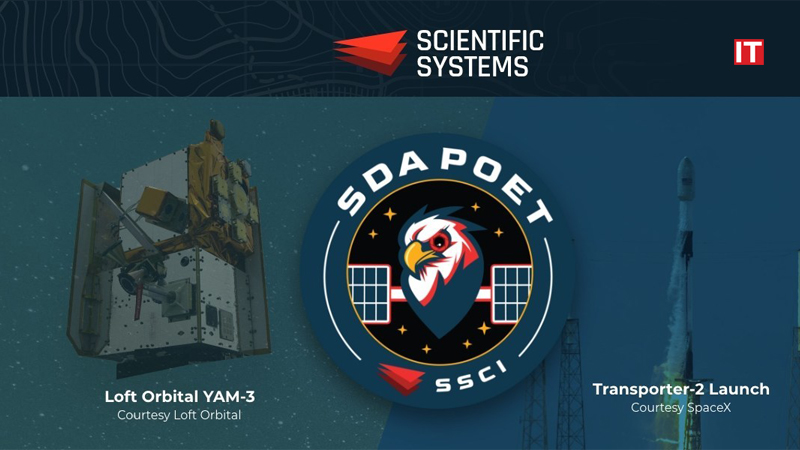Scientific Systems Company, Inc. (SSCI), an industry leader and pioneer in autonomous systems, has conducted initial demonstrations of its AI-enabled edge processing system as part of the Prototype On-Orbit Experimental Testbed (POET) experiment for the Space Development Agency (SDA). POET is hosted onboard Loft Orbital’s YAM-3, a “satellite-as-a-service” platform which was launched June 30, 2021 on Space-X’s Transporter-2 mission. POET’s space-based edge processing system is powered by SSCI’s Collaborative Mission Autonomy (CMA) software. POET provides an on-orbit SDA data fusion application prototype within the CMA software running on POET’s Innoflight CFC-400, a low size, weight, and power, highly capable, 0.5U size commercial off-the-shelf space processor.
Also Read: New KPM Analytics Academy Provides Advanced, Always-Available On-Demand Training And Support
SSCI, under the SBIR Phase II POET contract with SDA, integrated a machine learning based cloud-detection app, from an OUSD(R&E) funded BlackSky Technology, Inc contract with SDA, in just 4 weeks from delivery through execution. The cloud segmentation software automatically detects and segments out clouds from images collected by an electro-optical (EO) imager. This is the first step towards an initial edge-processing demonstration of multi-INT data fusion. Future experiments include uploading progressively more complex executions of 3rd-party software and load testing to inform edge processor sizing for SDA’s architecture. SDA’s architecture is designed to enable maintaining track for left-of-launch, time-critical targets and to enable the creation of weapons quality tracks from the sensor to the warfighter in operationally relevant timelines through increasing levels of automation. The objective is actionable sensor-to-shooter timelines in support of Beyond-Line-of-Sight (BLOS) engagements with long-range weapons, including hypersonic missiles.
The CMA software used in the POET experiment was originally tailored for DARPA’s Blackjack Pit Boss effort, and as such is designed to provide proliferated low-Earth Orbit (P-LEO) constellations with onboard battle management, command, control, and communications (BMC3) capability.
About Scientific Systems Company, Inc.
Founded in 1990 and based in Woburn, MA, Scientific Systems Company Inc. (SSCI) invents disruptive technologies, develops revolutionary solutions, and builds trusted products for our customers’ most challenging missions
































